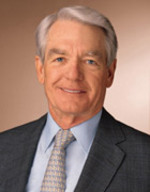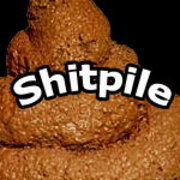Here is a story you won’t see first on CNBC.
There is a new king of Wall Street. Charles Schwab & Co.
The value of Schwab stock is practically unchanged since the start of the year. (I don’t own any but I do keep my money there.) In the present environment this is an immense achievement.
Schwab himself finally retired recently at age 70, for the second time. Hopefully the new guy, Walter Bettinger, whose former retirement planning outfit was acquired by Schwab in 1995, has learned the lessons and will stick to his knitting.
The reason you won’t hear about this on CNBC is precisely why Schwab is so strong. As with Seinfeld, this is a story about nothing.
Schwab doesn’t play with its customers’ money. It offers a selection of mutual funds, mostly index funds, and invests customer cash conservatively. It offers advice, but that advice is simply to diversify. It doesn’t make extra money if you take its advice, and it doesn’t make more if you don’t.
I like to call Schwab my "bookie" and that’s a pretty good description of the business model. Schwab doesn’t have a horse in the race. Schwab gets its vig no matter who wins.
All the money at Schwab is customer money, and its investments are
directed by customers. There are no hedge funds, no smart guys in a
corner with a computerized "system" they are certain will always beat
the market.
Now this has a downside. Schwab’s income is basically fee income. But
if you invested in Big Shitpile through Schwab, you did it yourself,
with eyes wide open. That’s your money you lost. Schwab didn’t lose it. There’s no big pile of
capital, owned and controlled by Schwab, getting into trouble.
There’s no mystery about it, and there’s no excitement either. Schwab
employees are on salary. They don’t get a rake-off when you bring money
to them. They act more or less like clerks.
Rather than investing in software that tries to beat the market, or
searching for scams with which to extract depositors’ funds from their
person, Schwab has invested in computer networks that take orders and
place orders, that account for trading and can deliver this service at
a reasonable price.
Schwab makes no effort to be the lowest-priced online broker. They’re
still charging $20/trade while others are bragging about charging $3.
But then again, they’re not looking for customers to whom the
difference between $3 per trade and $20 per trade is a really big deal.
Schwab has kept out of trouble. Schwab has no part of the Big Shitpile
(although some customers do). Schwab will be fine after Lehman and
Merrill and the rest have all gone away.
And at that point, ethical financial journalists will have no choice.
They will have to proclaim Charles Schwab & Co. the new Kings of
Wall Street.
That will be a big story. But you’ve learned it now.














Great post. Thanks for the info.
Great post. Thanks for the info.